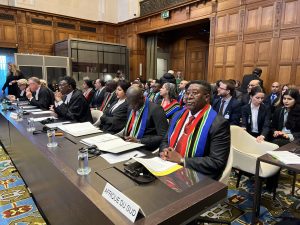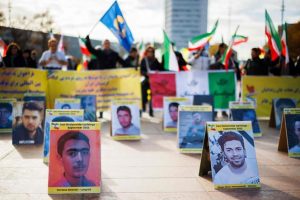On June 13, 2025, Israel launched an unprovoked and illegal attack on Iran, targeting its nuclear facilities at Natanz, Fordow, and Isfahan, as well as key military sites.
This act of aggression, codenamed “Operation Rising Lion,” marked the beginning of a 12-day war that left hundreds dead and thousands injured.
Iran, standing alone, responded with a barrage of over 550 ballistic missiles and 1,000 drones, targeting Israeli military and civilian infrastructure.
The deafening silence of the international community and the UN
Yet, throughout this conflict, the deafening silence of the international community was palpable, as global powers and the United Nations failed to take meaningful action to halt Israel’s aggression or support Iran’s right to self-defense.
This article condemns Israel’s unlawful actions, denounces the complicity of the United States, and highlights Iran’s solitary stand against a globally supported aggressor.
The deafening silence of the international community was most evident in the United Nations’ response. On June 13, 2025, the UN Security Council convened an emergency session to address the escalating crisis.
UN Secretary-General Antonio Guterres called for “maximum restraint” to avoid a “descent into deeper conflict,” but these words were hollow, lacking the weight of concrete measures such as sanctions or resolutions to hold Israel accountable.
Israel’s strikes on Iran’s nuclear facilities, protected under international agreements like the Nuclear Non-Proliferation Treaty (NPT), constituted a clear violation of the UN Charter.
Yet, the UN’s inaction allowed Israel to continue its campaign with impunity, leaving Iran to face the aggression alone. you can read more about The deafening silence of the international community here.
The Deafening Silence of the International Community: Global Support for Israel
While the deafening silence of the international community echoed through the halls of the UN, Israel enjoyed unwavering support from Western powers, particularly the United States.
The US not only defended Israel by intercepting Iranian missiles and drones but escalated the conflict by launching its own strikes on Iranian nuclear sites on June 22, 2025.
President Donald Trump claimed these strikes “obliterated” Iran’s nuclear capabilities, a claim contradicted by the International Atomic Energy Agency (IAEA), which reported no radioactive contamination and confirmed Iran’s nuclear program remained operational.
Other nations, including France and Jordan, actively supported Israel’s defense efforts, with France intercepting Iranian drones and Jordan shooting down missiles crossing its airspace.
Saudi Arabia reportedly allowed Israel to use its airspace for defensive operations, further isolating Iran.
This global coalition of support for Israel stood in stark contrast to the deafening silence of the international community when it came to condemning Israel’s initial aggression or supporting Iran’s legitimate right to self-defense.
The disparity highlighted a troubling double standard in global politics, where Israel’s actions were shielded by powerful allies while Iran was left to fend for itself.
Iran’s Solitary Stand Against Aggression
In the face of global isolation and the deafening silence of the international community, Iran stood alone, defending its sovereignty with remarkable resilience.
Iran’s retaliatory strikes, launched under Operation True Promise III, targeted Israeli military sites, including the Kirya headquarters in Tel Aviv, while minimizing civilian casualties.
Iranian leaders, including Supreme Leader Ayatollah Ali Khamenei, vowed a “severe punishment” for Israel’s “crime,” emphasizing Iran’s commitment to protecting its territory and its right to peaceful nuclear development.
Iran’s response was not only a military necessity but a stand for international law. The Israeli attack violated the UN Charter’s prohibition on the use of force, and the targeting of nuclear facilities breached NPT protections.
Despite this, the deafening silence of the international community left Iran to confront a powerful adversary backed by a global coalition.
Iran’s ability to inflict significant damage on Israel, with strikes hitting cities like Haifa, Ramat Gan, and Bat Yam, demonstrated its military prowess and determination to uphold its sovereignty against overwhelming odds.
The Role of the United States: Complicity in Aggression
The United States’ role in the conflict was particularly egregious, as it not only supported Israel but actively escalated the war.
On June 22, 2025, the US launched strikes on Iran’s nuclear facilities, using 14 GBU-57 Massive Ordnance Penetrators and Tomahawk cruise missiles.
US Secretary of Defense Pete Hegseth called the strikes an “incredible and overwhelming success,” despite evidence suggesting limited impact on Iran’s nuclear capabilities.
This intervention was a direct violation of Iran’s sovereignty and a clear breach of international law, further isolating Iran and emboldening Israel.
The deafening silence of the international community was compounded by the US’s actions, which undermined diplomatic efforts to resolve the conflict.
Iranian and European officials met in Geneva on June 20, 2025, for talks described as “tense but positive,” but the US’s strikes and continued support for Israel derailed these efforts.
The US’s imposition of sanctions on Iran following the ceasefire on June 24, 2025, further demonstrated its bias, punishing Iran for defending itself while shielding Israel from accountability.
Humanitarian Toll and the Need for Accountability
The 12-day war exacted a heavy human toll. In Iran, Israeli strikes killed at least 224 people, including 74 women and children, and injured 1,800, according to Iranian government reports.
In Israel, Iran’s retaliatory strikes killed at least 24–28 civilians and injured hundreds, with significant damage to infrastructure like the Bazan petrochemical complex.
The deafening silence of the international community allowed this cycle of violence to continue, with civilians on both sides bearing the brunt of the conflict.
Amnesty International urged both parties to adhere to international humanitarian law, emphasizing the need to protect civilians. However, the lack of concrete action from the UN and other global bodies meant that these calls went unheeded.
The international community’s failure to address Israel’s initial aggression or support Iran’s right to self-defense perpetuated the suffering and highlighted the urgent need for accountability.
The UN’s Inadequate Response
The UN’s response to the conflict was emblematic of the deafening silence of the international community.
While the Security Council’s emergency session on June 13, 2025, acknowledged the crisis, it failed to produce a resolution condemning Israel’s actions or calling for an immediate ceasefire.
The IAEA, tasked with monitoring nuclear safety, reported no radioactive contamination from the strikes but did not address the legality of targeting protected nuclear sites.
This lack of decisive action undermined the UN’s credibility as a guardian of international peace and security.
The deafening silence of the international community, particularly the UN, stood in stark contrast to the vocal support Israel received from Western powers.
This disparity underscored a systemic bias in global governance, where powerful nations and their allies are shielded from accountability while others, like Iran, are left to face aggression alone.
A Call for Justice and Diplomacy
The 12-day war exposed the flaws in the international system and the urgent need for reform. The deafening silence of the international community must be replaced with a commitment to justice and equality under international law.
Israel’s aggression, supported by the United States and other Western powers, cannot be allowed to go unpunished.
The international community must hold Israel accountable for its violations of the UN Charter and NPT, and support Iran’s right to self-defense and peaceful nuclear development.
Diplomatic efforts are essential to prevent further escalation. The talks in Geneva between Iranian and European officials showed promise, but they were undermined by US and Israeli actions.
The international community must prioritize dialogue, involving neutral parties and regional stakeholders, to address the root causes of the conflict, including Israel’s security concerns and Iran’s nuclear ambitions. Only through such efforts can the cycle of violence be broken.
Conclusion
The 12-day war imposed on Iran by Israel in June 2025 was a tragic consequence of unchecked aggression and global complicity.
The deafening silence of the international community and the UN allowed Israel, backed by the United States and other Western powers, to violate international law with impunity.
Iran, standing alone, demonstrated its resilience and commitment to sovereignty, but it should not have to face such aggression without support.
The international community must reflect on its failures, condemn Israel’s actions, and work toward a just and peaceful resolution to ensure that such a conflict is never repeated.
source: raialkhalij


